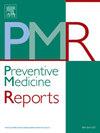美国糖尿病患者的癌症信念、风险认知和健康保护行为:来自健康信息全国趋势调查的结果
IF 2.4
3区 医学
Q2 PUBLIC, ENVIRONMENTAL & OCCUPATIONAL HEALTH
引用次数: 0
摘要
糖尿病和癌症有共同的可预防的危险因素,包括肥胖、缺乏运动和不良饮食。糖尿病患者患癌症的风险增加。我们研究的目的是比较美国糖尿病患者和非糖尿病患者对癌症风险的认知、对癌症的信念和癌症保护行为。方法采用具有全国代表性的横断面健康信息全国趋势调查(HINTS) 6(2022)的数据。糖尿病和癌症病史均为自述。我们比较了没有癌症病史的糖尿病患者和非糖尿病患者对癌症和癌症保护行为的看法。结果共纳入样本3937人。调整后,糖尿病患者与非糖尿病患者对癌症的信念(担忧、风险、可预防性、致死率或预防进展)和癌症保护行为(吸烟、饮酒、体育活动和癌症信息寻求)无显著差异。结论我们的研究结果表明,需要进一步的研究来提高对糖尿病患者癌症风险和保护行为的认识和认识。本文章由计算机程序翻译,如有差异,请以英文原文为准。
Cancer beliefs, risk perceptions, and health protective behaviors among people living with diabetes in the United States: Results from the Health Information National Trends Survey
Objective
Diabetes and cancer share common preventable risk factors, including obesity, physical inactivity, and poor diet. People with diabetes have an increased risk of developing cancer. The objective of our study was to compare cancer risk perceptions, beliefs about cancer, and cancer protective behaviors among people with and without diabetes in the United States.
Methods
We utilized data from the cross-sectional nationally representative Health Information National Trends Survey (HINTS) 6 (2022). Diabetes and cancer history were self-reported. We compared beliefs about cancer and cancer protective behaviors between individuals with and without diabetes who reported no cancer history.
Results
The sample included 3937 individuals. There was no significant difference in beliefs about cancer (worry, risk, preventability, fatality, or prevention progress) and cancer protective behaviors (smoking, drinking, physical activity, and cancer information seeking) between individuals with diabetes and those without diabetes after adjustment.
Conclusions
Our findings highlight the need for further research to enhance understanding and improve awareness of cancer risk and protective behaviors among people living with diabetes.
求助全文
通过发布文献求助,成功后即可免费获取论文全文。
去求助
来源期刊

Preventive Medicine Reports
Medicine-Public Health, Environmental and Occupational Health
CiteScore
3.90
自引率
0.00%
发文量
353
 求助内容:
求助内容: 应助结果提醒方式:
应助结果提醒方式:


